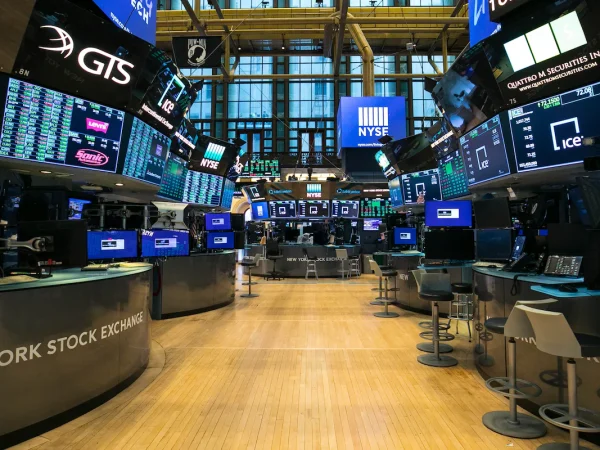Brexit and Beyond: How London’s Business Scene is Adapting to Change

The decision of the United Kingdom to exit the European Union, commonly referred to as Brexit, sent shockwaves across the global business landscape. Amid uncertainties and challenges, London’s resilient business community has demonstrated remarkable adaptability and innovation. In this article, we delve into how London’s business scene is navigating the post-Brexit era, the strategies adopted by various industries, and the potential opportunities that lie ahead.
Navigating the Post-Brexit Landscape
Adapting to New Trade Realities
London’s business landscape has undergone a seismic shift due to changes in trade agreements and regulations. Industries heavily reliant on imports and exports are recalibrating their supply chains, customs procedures, and compliance measures to ensure continued smooth operations.
Financial Services and Regulatory Alignment
The financial services sector, a cornerstone of London’s economy, faces regulatory challenges in maintaining its pre-Brexit access to the European market. London-based banks and institutions are establishing EU entities, adapting to new regulatory frameworks, and exploring partnerships to retain their foothold in European finance.
Tech and Innovation Resilience
The technology and innovation sector has exhibited resilience by capitalizing on new opportunities. Tech companies are embracing remote work models, digital platforms, and virtual collaborations to remain competitive in the global market, regardless of geographical constraints.
Diversification of Trade Partnerships
Businesses are diversifying their trade partnerships beyond the EU to mitigate risks and explore new markets. London’s strategic location, robust infrastructure, and global connectivity position it as an attractive hub for international trade and investment, allowing businesses to forge alliances worldwide.
Innovation in the Face of Challenges
Supply Chain Optimization and Digitalization
London-based companies are optimizing their supply chains and embracing digital solutions to counter the disruptions caused by Brexit. Advanced technologies such as blockchain, AI-driven logistics, and real-time tracking are streamlining processes and enhancing transparency across supply networks.
Reskilling and Talent Development
The shift in trade dynamics has prompted businesses to invest in upskilling and reskilling their workforce. London’s institutions and training programs are equipping professionals with the skills required to navigate new regulatory environments and operate efficiently in evolving markets.
Sustainable Practices and Circular Economy
London’s commitment to sustainability remains unwavering. Businesses are increasingly adopting circular economy principles, minimizing waste, and integrating sustainable practices into their operations. This shift aligns with international standards and enhances the city’s reputation as a responsible global business hub.
Creative Solutions for Financial Services
The financial services sector is exploring innovative solutions to maintain cross-border financial operations. London’s fintech startups are developing digital platforms, smart contracts, and decentralized finance (DeFi) technologies that offer seamless financial services across borders.
Opportunities on the Horizon
Attracting Global Investment
Brexit has prompted London to enhance its appeal as a destination for global investment. The city’s regulatory flexibility, diverse talent pool, and established financial infrastructure position it as an ideal base for multinational corporations seeking to establish or expand their operations.
Rethinking Trade Relationships
Brexit encourages London to forge trade relationships outside the EU. The UK’s newfound flexibility enables it to negotiate bilateral trade agreements and pursue bespoke arrangements with countries worldwide, potentially opening doors to previously untapped markets.
Innovation and Entrepreneurship
London’s post-Brexit landscape offers fertile ground for innovation and entrepreneurship. Startups are seizing opportunities in areas such as fintech, healthtech, and sustainable technologies, supported by incubators, accelerators, and a vibrant ecosystem that nurtures creative ventures.
Frequently Asked Questions
How has Brexit impacted London’s status as a global financial center?
Brexit has prompted shifts in financial services, including the establishment of EU entities to maintain market access. While some operations have relocated, London’s financial ecosystem remains strong due to its infrastructure, expertise, and global reach.
Are there sectors that have benefitted from the changes brought by Brexit?
Yes, sectors such as tech and innovation have leveraged the changes to explore new opportunities. Tech companies are finding innovative solutions for global collaboration, and the ability to forge trade relationships beyond the EU is opening doors for diverse industries.
How is London addressing challenges related to customs and logistics?
Businesses are investing in technology-driven solutions to streamline customs procedures and optimize logistics. Digital platforms, real-time tracking, and AI-driven systems are enhancing supply chain efficiency and reducing delays.
What role does London’s multiculturalism play in its adaptation to Brexit?
London’s multiculturalism enhances its adaptability by fostering diverse perspectives and cross-cultural collaboration. It allows the city to tap into a wide range of talents and insights when devising strategies to navigate post-Brexit challenges.
How can startups leverage Brexit-related changes to their advantage?
Startups can embrace the digital transformation of trade processes, seek investment in innovative solutions, and explore new markets beyond the EU. The flexibility and adaptability characteristic of startups position them well to capitalize on emerging opportunities.
In conclusion, London’s business scene is undergoing a transformation as it adapts to the challenges and opportunities presented by Brexit. The city’s resilience, innovation, and global outlook are driving its evolution into a dynamic hub that continues to attract businesses of all scales. As London navigates the post-Brexit landscape, its ability to innovate, diversify, and build international partnerships positions it for success in an ever-changing global economy.
Also Read: The Financial Heartbeat of Europe: London’s Thriving Business Districts








